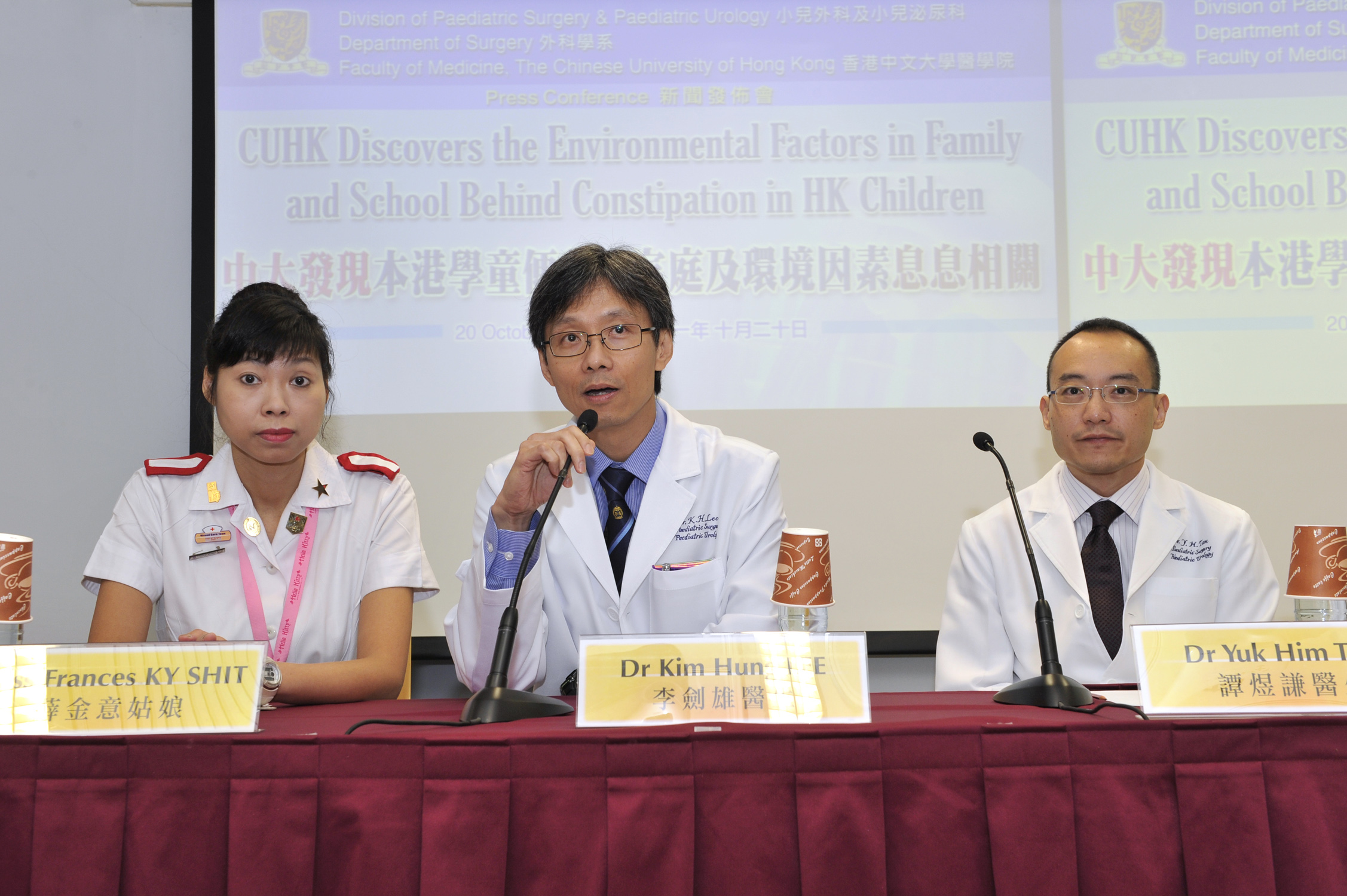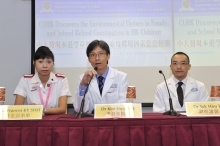CUHK
News Centre
CUHK Discovers the Environmental Factors in Family and School Behind Constipation in HK Children
Constipation is a common gastrointestinal disorder in children, with a prevalence rate of up to 30% in the world as recorded in the medical literature. For many years, medical research in childhood constipation has been hampered by the lack of a uniform definition. In recent years, diagnostic criteria have been standardized by international experts with an aim to facilitate research and comparison between reports with cultural and geographical variations. The causes of constipation and how it develops in children have not been fully understood. The habit of voluntary postponement of defecation or the stool withholding behaviour in medical term is the most widely investigated. Such behaviour leads to a vicious cycle and ends up in chronic constipation. Surprising to many people, chronic constipation, if left untreated, will result in fecal incontinence in children. Researchers worldwide have been investigating factors which potentially trigger or perpetuate the problem of constipation in an effort to reduce the number of severe and chronic cases by correcting such factors.
The Division of Paediatric Surgery and Paediatric Urology of the Department of Surgery at The Chinese University of Hong Kong (CUHK) conducted a territory-wide survey of constipation among children in primary schools from March to June 2011. The scale of the study is the largest ever conducted among Hong Kong children using internationally agreed definition. Over 2,300 Primary 1 to Primary 6 children from 10 schools were randomly selected from different districts in Hong Kong. Among these interviewees, 98% of them aged 6-12 and 2% of them aged 13-15. The study confirmed that 12.2% of children were suffering from constipation.
A number of socio-environmental factors were identified in the study to be associated with constipation in children. Children having the following risk factors had higher prevalence rates of constipation: a) both parents are not living with the child (27.5%), b) presence of one/both parents in dinner with the child for less than 50% of the time (16%), c) refusal to have bowel movements in school toilets despite the urge (16.3%), d) busy after-school life with homework (14.6%) and inadequate night time sleep (17.4%). Constipated children were also found to have the tendency of eating less fibers and having more consumption of fast food and local street food than non-constipated children. Since most of the factors have never been reported in previous studies, the new findings help to better tackle this common health problem in our children.
In conclusion, CUHK's research has identified a number of socio-environmental factors which may increase the risk of development of constipation in children. Bringing these risk factors to the awareness of the medical profession and the public helps prevent childhood constipation and stop its progression at an earlier stage. 'We wish to draw attention that childhood constipation is prevalent in our society and fecal incontinence in children is always a result of untreated chronic constipation. Parents, schools and primary health care physicians can collaborate their effort to prevent childhood constipation by discouraging postponement of defecation in children, promoting a positive attitude of using school toilets and building up a regular bowel habit in our children,' said Dr. Tam Yuk Him, CUHK Honorary Clinical Associate Professor and the chief investigator of this study.
(from left) Miss Frances KY SHIT, Nurse Specialist, Department of Surgery, Prince of Wales Hospital; Dr Kim Hung LEE, Head of Division, Division of Paediatric Surgery and Paediatric Urology, Department of Surgery, CUHK and Dr Yuk Him TAM, Honorary Clinical Associate Professor, Division of Paediatric Surgery and Paediatric Urology, CUHK



